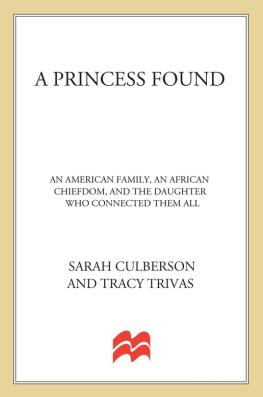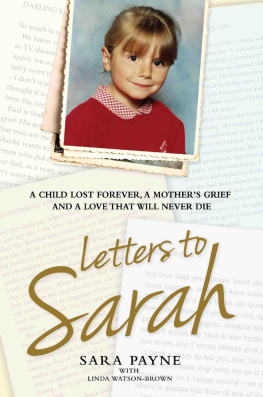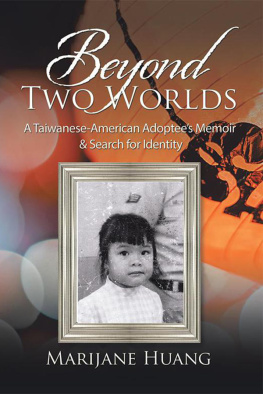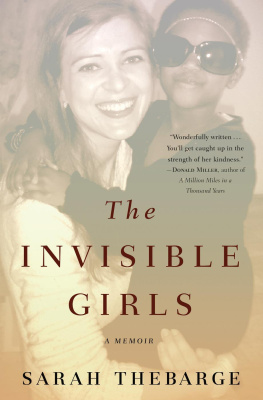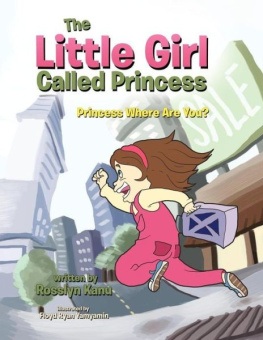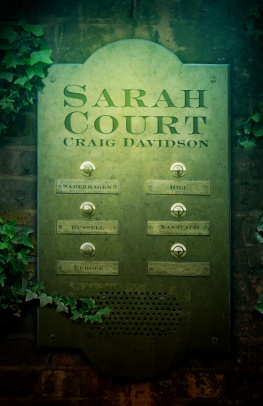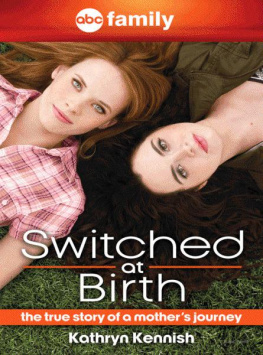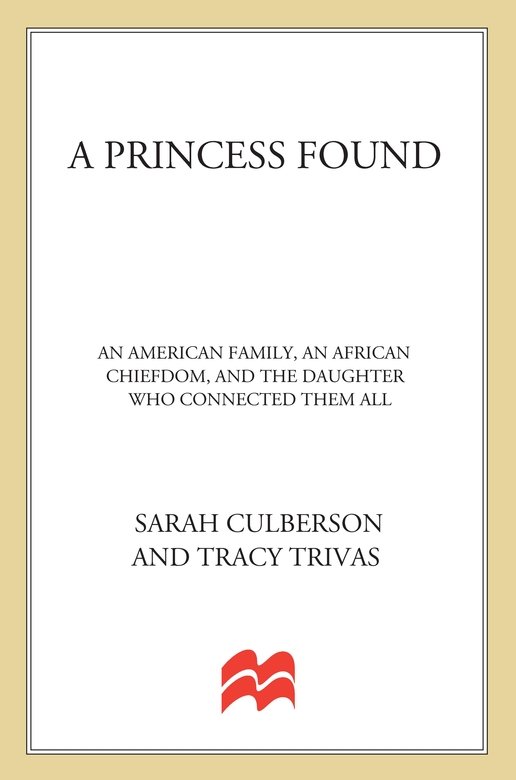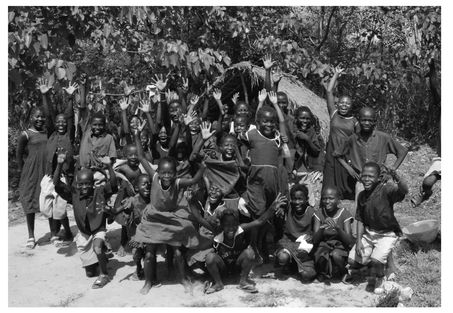My first thank-you goes to my friend and writing partner, Tracy Trivas, whose brilliance, persistence, and professionalism were essential to the creation of this book. Tracys thought-provoking questions and insatiable curiosity captured the spirit of Bumpes people and helped to make our journey together a remarkable one. Thank you to Tracys husband, Alexander, and their family, for their guidance and support as we embarked on the birth of this book.
A book as personal as this one depends on incredible assistance from the people closest to me. I am deeply grateful to my mom and dad, Jim and Judy Culberson, for being my angels. Their wings of love always surround me. My sisters Lynne and Laura and their familiesMike, Jonathan, Austin, Spencer, Mackenzie, and Bryaninspire me along with my large extended family. I am grateful to my boyfriend, Von, and his daughter, Hana, for their love, patience, and encouragement throughout the process of writing this book. Thanks to Aunt Fran, Uncle Paul, and my late Grandma Sarah, who cared lovingly for my late mother, Penny, and who opened their hearts to me. Thank you to my late birth mother, Penny, for her strength and love. You will always be in my heart.
This book would not have been written, nor would I be who I amtoday, without the special communities in my life. The first of these is my hometown of Morgantown, West Virginia. The community of my childhoodthe schools, Wesley United Methodist Church, West Virginia Universitywas filled with loving friends, mentors, and teachers. I am grateful for the opportunities I have had to learn from so many dedicated teachers and professors in Morgantown as well as at the American Conservatory Theatre in San Francisco. I also want to thank the extraordinary fellow teachers, families, and students at Brentwood Middle School for their friendship and support. Thank you to Landmark Education for the programs that have opened my eyes to a new world of possibilities that I never imagined.
The entire story came to life because my birth father, Joseph Konia Kposowa, welcomed me into his world. I am deeply grateful to him and to all of my Leonean family. My father also connected me with new friends in Sierra Leone and with the students of Bumpe High School. He and many exceptional people in Sierra Leone, even after losing so much to a horrendous war, were able to convey their gracious spirit and affection to a longlost daughter.
A special thanks to my Uncle Tibbie Kposowa, for his knowledge, of Sierran Leonean customs, exacting Mende translation, and boundless encouragement. Thank you to my unclesDr. Joe Francis Kposowa, for his help with photos and family history, and Dr. Augustine Kposowa, for his knowledge of Leonean history. I want to thank the many relatives and family friends who introduced me to Sierra Leonean customs and made me feel welcomed.
I would like to thank my agent, Mel Berger, for answering all of our many questions and for providing constant support and guidance. Thank you to our creative editor, Monique Patterson, for her interest in this story and for giving us the opportunity to write it. My sincere thanks to everyone at St. Martins Press.
I want to thank the members of the Kposowa Foundation Board for several years of unceasing effort in service to the foundations work in Bumpe.I am especially grateful to John Woehrle, co-founder, for his tireless work in creating the Kposowa Foundation and for his friendship. Thank you to everyone who has supported the foundation. You are helping to make a difference in Sierra Leone and in the world.
SARAH CULBERSON
Bumpe, Sierra Leone 1994
Before the rebels attacked Josephs village, they first sent in child spies. That was the way it was doneboys, ages 1014, pretended to be lost, refugees, or orphans, but they were child soldiers with nicknames like Commander Cut Hands, Crazy Jungle, or Captain Bloodie. For simple scout missions, their adult commanders did not waste precious drugs on the children, hallucinogens which revved them into fearless and brutal machines. Only later in the afternoon, when the rebels ordered the child soldiers to kill did they carve slits into the boys young temples, pierce holes into their tender veins, and rub cocaine and brown-brown heroin into their raw wounds. Scotch tape slapped across the incisions pressed the drugs deeper into their bloodstreams.
The child spies penetrated Bumpe, Josephs village, at 1:30 P.M., right before lunchtime, acting only like boys. First they asked a passing villager, an African woman with a tin bucket on her head, for water.
Mama, gi me wata, they said in Krio, the common language melded from the centuries of contact between the colonial British, freed slaves, and Africans.
Ya de wata, she said, pouring water from her vessel.
Tenki, they said.
Spying Josephs well-used soccer ball in the yard, they even began aspontaneous game in the red dirt close to his home. A few boys wrestled. But soon the older boys trickled off, no longer soccer players but now morphed into moles, casing available supplies: sacks of rice, drums of water, mangoes, yams, dried fish, palm oil, and cassava leaves ready to be plucked from backyard patches. Next the population needed to be assessed: How many women? How many young girls ripe for sexual slaverytheir ebony legs to be roped together at the ankles and gang-raped? How many new child soldiers could be adopted and drafted with the help of machetes, AK-47s, handheld RPGs (rocket-propelled grenades), and G3 automatic rifles?
On December 31, 1994, Joseph Konia Kposowa, forty-one-years old, a member of a ruling Mende family and the son of a great Paramount Chief, traveled to the neighboring village of Taninahun with his two children, five-year-old Hindogbae, and ten-year-old, Jeneba, for a holiday visit with his mother, Musu.
Although his full Christian name was Joseph, everyone in his village called him Joe, which was most fitting as he was a powerful man, worthy of a swift, one syllable name. Although not tall in stature, his presence was unmistakable as a leader in his village. Everyone in Bumpe considered Joe a big man, a term villagers spoke in hushed tones about important people. Joe ran the prestigious Bumpe High School and took in seven children, besides his own son and daughter, to support and send to school.
The civil war that ravaged the country had not yet touched Joes village or impacted his students. Although he and the village elders held meetings about the rebels, listening in silence around Joes portable radio for war updates, no one believed the rebels could be so closenot yet.
When Joe, in his Toyota Hilux truck, left his wife and in-laws behind to continue the simple rituals of everyday lifeweaving country cloth, preparing a lunch of rice, okra, and maybe even peanut souphe had no particular worries. It was a simple day, a day off from teaching at the boarding school where he was the principal, a day not consulting or advising his brother who was campaigning for the position of Paramount Chief. Only royal family members could run for Paramount Chief, a position his grandfather held and his father, Francis Kposowa, held for thirty years, governing thirty-six thousand people.
But it was that afternoon the rebels chose for the first attack.

